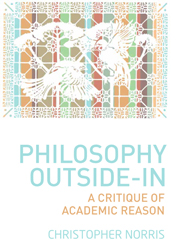Book contents
- Frontmatter
- Contents
- Dedication
- Introduction
- 1 How Not to Defeat Scepticism: Why Anti-realism Won't Do the Trick
- 2 Great Philosophy: Discovery, Invention and the Uses of Error
- 3 Under Which King, Bezonian? Experimental Philosophy versus Thought Experiment
- 4 Outside the Box: On the ‘Extended Mind’ Hypothesis
- 5 Inaesthetics and Transitory Ontology: The Case of Political Song
- 6 Speculative Realism: An Interim Report
- 7 Provoking Philosophy: Shakespeare, Johnson, Wittgenstein, Derrida
- Index
1 - How Not to Defeat Scepticism: Why Anti-realism Won't Do the Trick
Published online by Cambridge University Press: 05 March 2014
- Frontmatter
- Contents
- Dedication
- Introduction
- 1 How Not to Defeat Scepticism: Why Anti-realism Won't Do the Trick
- 2 Great Philosophy: Discovery, Invention and the Uses of Error
- 3 Under Which King, Bezonian? Experimental Philosophy versus Thought Experiment
- 4 Outside the Box: On the ‘Extended Mind’ Hypothesis
- 5 Inaesthetics and Transitory Ontology: The Case of Political Song
- 6 Speculative Realism: An Interim Report
- 7 Provoking Philosophy: Shakespeare, Johnson, Wittgenstein, Derrida
- Index
Summary
I
With the exception of doughty defenders such as Joseph Margolis there are rather few philosophers nowadays who would happily sign up to the relativist cause in anything like an overt, programmatic or doctrinally explicit way. The reason for this reluctance is plain to see since the chronicle of mainstream Western philosophy from Plato and Aristotle down is very largely the record of those who deemed themselves serious, rational, truth-seeking, disciplined, rigorous or intellectually and vocationally qualified thinkers and who took this to require that they espouse a position at the maximum possible distance from their relativist Others. These latter have gone under various pejorative names from time to time – whether ‘sophists’ for Plato or ‘postmodernists’ for his avatars in the present-day analytic camp – but their trademark signatures have remained pretty much unchanged. Thus the history of relativism, at least as told from this antagonistic standpoint, is the history of so many temporally indexed, technically or idiomatically diverse but nonetheless deeply kindred variations on the basic theme that ‘man is the measure’. Just as Plato derived considerable philosophic mileage from his set-piece ripostes to the sophists in numerous contexts of debate from logic, metaphysics and epistemology to ethics and political theory so present-day philosophers draw a great deal of intellectual and moral sustenance from their claim to be carrying on the good fight that Plato took up from Parmenides and which has since then figured centrally in philosophy's elective self-image as a discourse specialised in the pursuit of reason and truth.
- Type
- Chapter
- Information
- Philosophy Outside-InA Critique of Academic Reason, pp. 33 - 60Publisher: Edinburgh University PressPrint publication year: 2013

